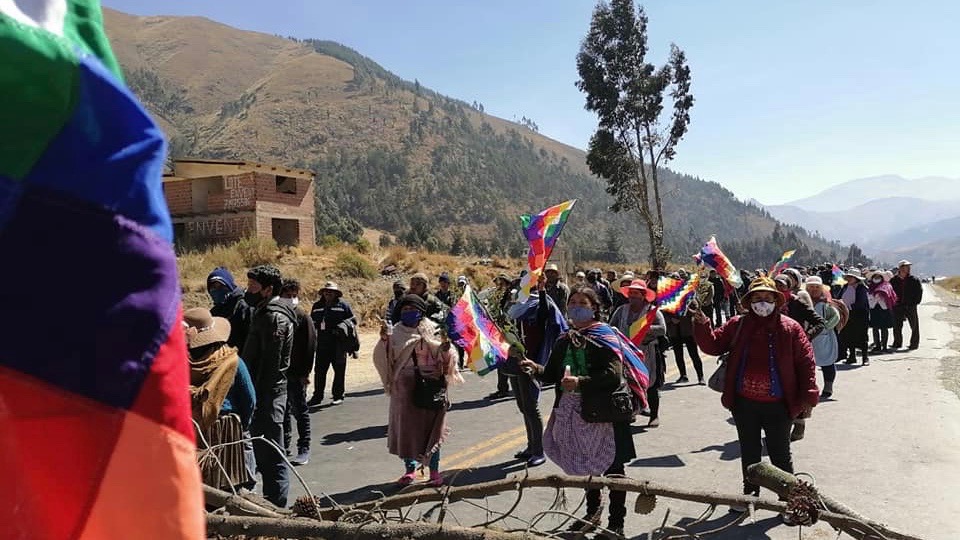On August 3, social movements, trade unions, Indigenous and peasant organizations and groups, demonstrated across Bolivia against the postponement of the general elections in the country. Several organizations that mobilized are associated with former president Evo Morales’ party, the Movement Towards Socialism (MAS) which has been facing a campaign of persecution in order to impede their full participation in the electoral process.
Massive mobilizations were carried out in different parts of the country demanding restoration of democracy and compliance with the decision to hold elections on the originally agreed date, September 6. The protesters also blockaded major highways and roads throughout the country to exert pressure on Bolivia’s coup-installed government to overturn its decision to further delay the democratic elections in the country.
According to the National Transit Directorate, over 24 important interdepartmental and inter-provincial highways were blocked by protesters across the national territory.
8am – Roads have been barricaded all around Bolivia since midnight with citizens demanding the restoration of democracy through fair elections. Here's the town of San Isidro, near Villa Tunari in the Trópico. pic.twitter.com/vmmyEnQt2O
— Kawsachun News (@KawsachunNews) August 3, 2020
The call to maintain nationwide road blockades was given by the Central Obrera Boliviana (COB), Bolivia’s trade union center, and the Pact of Unity, a national alliance of grassroots organizations in Bolivia.
During a public council in El Alto city on July 29, the COB’s leader, Juan Carlos Huarachi, announced a 72-hour deadline to reverse the decision to postpone elections. The trade union center warned that if the deadline is not met, they will embark on a general strike and maintain indefinite road blockades in all nine departments across the country beginning on August 3.
The Coordinator of the Six Federations of the Tropic of Cochabamba, the Peasant Workers Federation ‘Ponchos Rojos’, the Federation of Intercultural Communities and Agricultural Producers, among several others, supported the call and reiterated to continue the measure of protest indefinitely.
On August 3, the Supreme Electoral Court (TSE) ratified that the general elections would be held on October 18, 2020, despite the widespread indignation.
Nevertheless, former president Morales and the MAS party denounced the decision and reminded that only Bolivia’s parliament, the Plurinational Legislative Assembly, has the authority to approve any change in the date of the elections.
The people’s opposition to election postponement has also been met with repression from the regime. On July 29, charges were pressed against the executive secretary of the COB, Juan Carlos Huarachi, for leading the protests and allegedly threatening the health of Bolivians. MAS deputy, Betty Yañiquez, is also facing charges for showing support for the protests. A criminal lawsuit was also filed against Morales for organizing and financing the nationwide anti-government protests of July 28.
On July 23, the TSE postponed the elections scheduled for September 6 to October 18, citing the COVID-19 pandemic. The de-facto government led by far-right Jeanine Áñez, which seized power following the civic-military coup against Morales in November 2019, has postponed the general elections three times since March this year.
Social movements have condemned Áñez for using the coronavirus outbreak as an excuse to suspend elections while doing nothing to tackle the health crisis. They also denounced that postponement of elections is a way to extend her time in office and to advance the right-wing and neoliberal projects, such as privatization of the country’s natural resources and public education and healthcare.
For more on the context behind these mobilizations see our interview with Bolivian journalist Ollie Vargas: “The people of Bolivia will no longer be intimidated”





